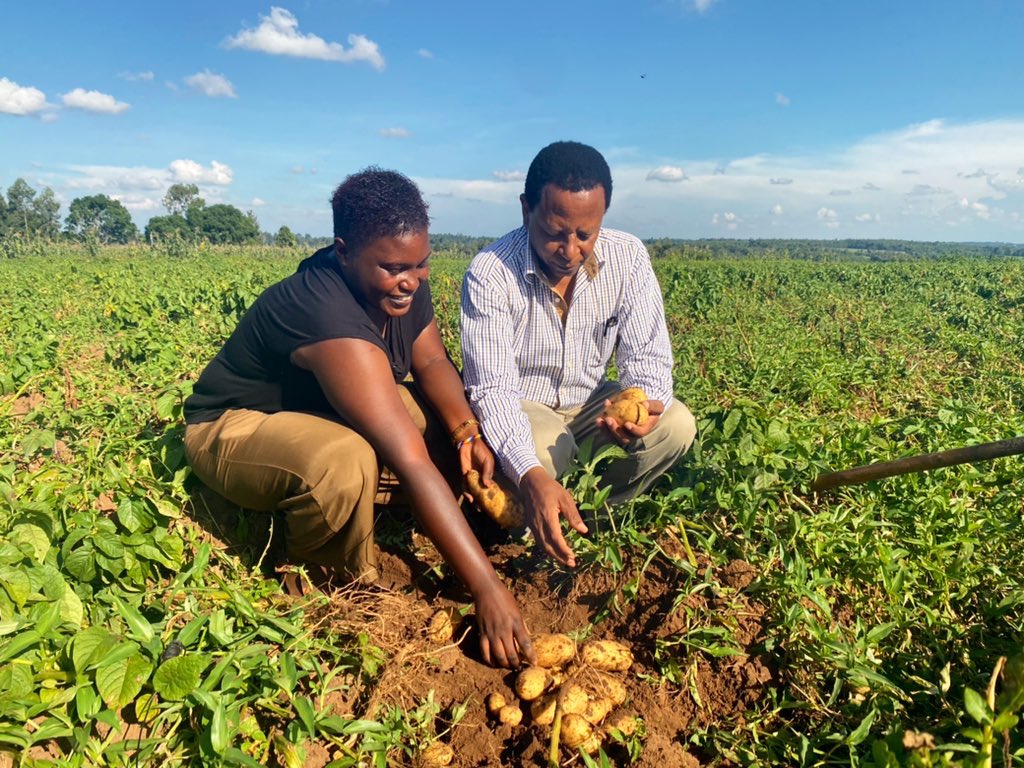Tanzania unveils The 2024-2031 Bamboo Strategy
Kilimokwanza.org Team
In an audacious move toward environmental sustainability and economic revitalization, Hon. Angellah Kairuki, Minister of Natural Resources and Tourism, has unveiled an ambitious Bamboo Strategy for the years 2024 to 2031. This groundbreaking initiative not only marks Tanzania’s commitment to green development but also positions the nation at the forefront of the global fight against climate change.
A Strategic Vision for Bamboo
On Monday, February 19, 2024, in Dar es Salaam, amidst an audience of policymakers, industry leaders, and environmental advocates, Minister Kairuki underscored the critical timing and potential of this strategy. By calling upon all stakeholders in the bamboo value chain to collaborate with the government, she emphasized the transformative power of bamboo in contributing to the economy and addressing climate concerns.
Tanzania’s engagement with the International Network for Bamboo and Rattan (INBAR) since 1997 highlighted a foundational commitment to bamboo. Yet, as Minister Kairuki noted, the launch of this comprehensive strategy was a long-awaited step, signaling a renewed and urgent focus on maximizing the environmental and economic benefits of bamboo.
Economic and Environmental Pillars
The Bamboo Strategy is designed to leverage multiple facets of bamboo cultivation. From soil stabilization and carbon sequestration to the production of bamboo-based products like furniture and toothpicks, the strategy aims to foster a sustainable model of economic development that aligns with environmental conservation.
Central to the strategy is the mobilization of the private sector, NGOs, and local communities to cultivate bamboo on a scale previously unseen in Tanzania. This mobilization is expected to ensure a steady supply of raw materials for an emerging bamboo industry, promising job creation and industrial growth.
Government’s Role and Directives
The Tanzanian government, has laid out specific directives to facilitate the strategy’s implementation. The Tanzania Forest Services (TFS) has been tasked with ensuring the availability of high-quality bamboo seeds, making bamboo cultivation accessible to a wider demographic. Additionally, the Tanzania Forestry Research Institute (TAFORI) is to identify optimal areas for bamboo cultivation, ensuring the plant’s sustainable growth.
Moreover, Kairuki’s call to translate strategic documents into Swahili and disseminate them widely is a testament to the inclusive approach the government is taking, ensuring that every Tanzanian can be a part of this green revolution.
Technological Innovation and International Collaboration
Recognizing the importance of technological advancement in bamboo processing, the strategy encourages innovation and collaboration. By directing the Forestry Industries Training Institute (FITI) in Moshi to work alongside the Small Industries Development Organization (SIDO) and others, Tanzania aims to enhance the bamboo value chain with modern technologies, increasing both domestic and international market competitiveness.
The involvement of international bodies like INBAR not only reinforces Tanzania’s commitment to global environmental standards but also opens up avenues for knowledge exchange and financial support in bamboo cultivation and product development.
Community Empowerment and Environmental Stewardship
At the heart of the Bamboo Strategy is the empowerment of local communities. By providing education on bamboo cultivation and management, the government envisions a model of development where environmental stewardship and economic prosperity go hand in hand. This initiative is expected to foster a sense of ownership among Tanzanians, encouraging sustainable practices and the conservation of natural resources for future generations.
Challenges and Opportunities
Despite the clear vision and comprehensive planning, the strategy faces challenges, including climate variability, land availability, and the need for continuous research and development. However, these challenges also present opportunities for innovation, international cooperation, and the development of a resilient green economy.
A Call to Action
Minister Kairuki’s call to action extends beyond the immediate stakeholders in the bamboo industry. It is a national call for unity in pursuit of sustainable development, aligning with President Samia Suluhu Hassan’s vision for a greener, more prosperous Tanzania. The strategy’s success hinges on collaborative efforts, from government agencies to local communities and international partners, each playing a pivotal role in realizing the full potential of bamboo as a cornerstone of Tanzania’s green economy.
Looking Forward
The Bamboo Strategy launch was not just a ceremonial event but a beacon of hope for environmental conservation and economic development in Tanzania. With the ongoing support of the parliamentary committee, led by Chairman Timotheo Mzava, and the active participation of various stakeholders, Tanzania is poised to become a model for sustainable development in Africa and beyond.
As the strategy unfolds over the next seven years, it promises to catalyze significant changes in how Tanzania manages its natural resources, engages with global environmental initiatives, and harnesses the economic potential of green industries. The Bamboo Strategy is more than a plan; it’s a commitment to a sustainable future, leveraging the unique properties of bamboo to address pressing economic and environmental challenges.
In embracing this strategy, Tanzania reaffirms its role as a leader in sustainable development, setting a precedent for others to follow. The journey ahead is filled with promise and potential, as the nation stands united in its quest for a greener, more prosperous future. The Bamboo Strategy is not just a blueprint for growth; it’s a testament to Tanzania’s resilience, innovation, and commitment to the planet and its people.


